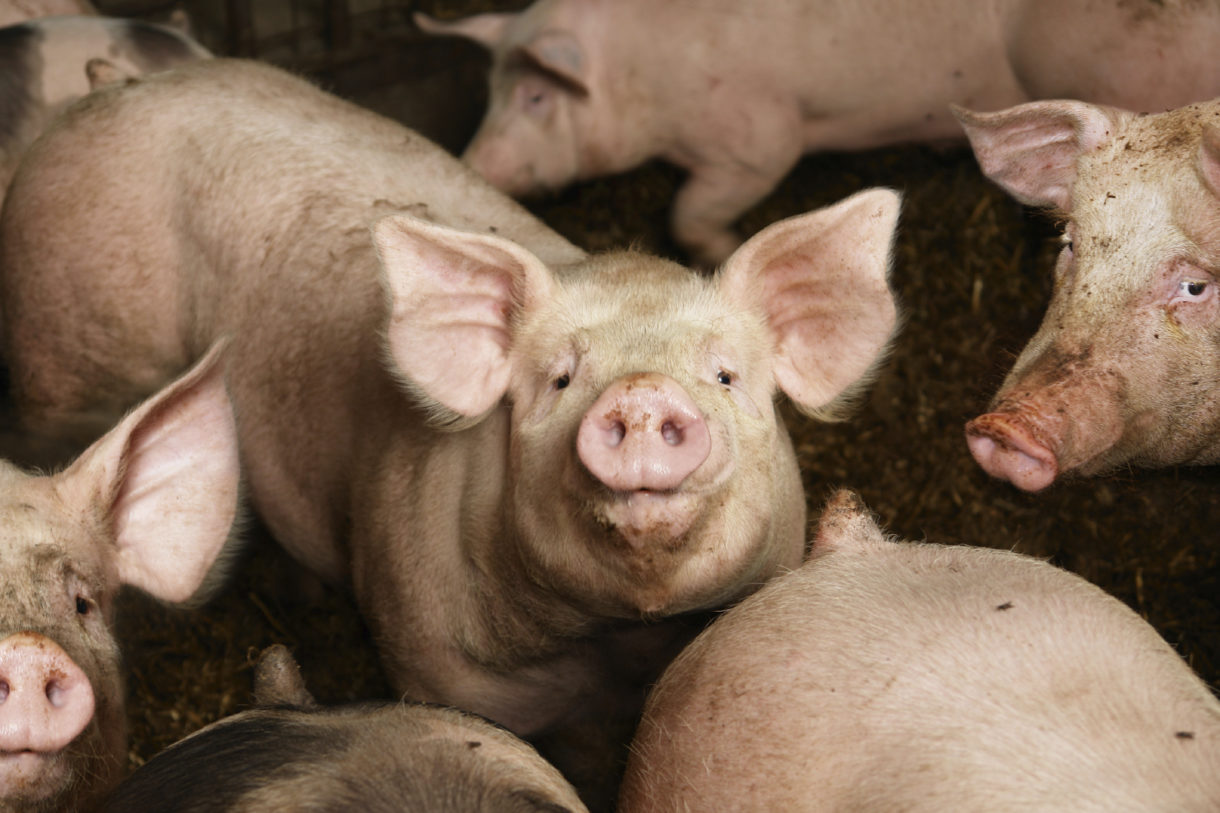Humane Society: Farm Bill should support family farmers, not factory farms

One of the core issues at stake in the 2018 Farm Bill is the degree to which it favors factory farming operations over independent family farmers committed to more humane and sustainable approaches to animal welfare, environmental stewardship, social cohesion, economic opportunity and healthy communities. Photo by iStockphoto
by Kitty Block | September 24, 2018
With the confirmed deaths of 3.4 million chickens and 5,500 hogs in North Carolina’s factory farms during Hurricane Florence, and the toxic torrent released by the flooded-out fecal lagoons of the industry in that state, a look at federal policy on factory farming could not be more timely. Through this and prior incidents, Tarheel State residents have been learning the hard way that factory farms don’t make good neighbors. At the Humane Society of the United States, we’ve known that for a long while. That is why we are working hard to ensure that the latest iteration of the Farm Bill supports America’s independent family farmers over Big Ag.
One of the core issues at stake in the 2018 Farm Bill is the degree to which it favors factory farming operations over independent family farmers committed to more humane and sustainable approaches to animal welfare, environmental stewardship, social cohesion, economic opportunity and healthy communities. The Farm Bill covers everything from farm safety nets to land conservation programs to nutrition programs for low-income citizens. At approximately 956 pages, and a cost in the hundreds of billions of dollars, the legislation affects each and every one of us — farmer or not.
In an op-ed in The Hill earlier this month, one Missouri farmer and cattleman points out how — at every turn — the Farm Bill favors factory farming corporations and their concentrated animal feeding operations (CAFOs) over independent family farmers.
Ultimately, the Farm Bill will determine whether our current agricultural system will see the reform that it so desperately needs. At the HSUS, we do our best to stand firmly alongside the nation’s humane, sustainable farmers, and we appreciate all that we have in common. Our Rural Affairs Department works daily on the issues most important to these farmers, who live and work throughout the United States, and some of whom serve on our state and national Agriculture Advisory Councils. Because of them, we more clearly understand the issues that most directly affect American farmers committed to high standards of animal welfare.
This is one of the reasons that we have pressed to close loopholes in the U.S. Department of Agriculture’s checkoff programs, originally established to pool money for commodity promotion and research. These programs have long been misused by corporate interests to sabotage and lobby against animal welfare reforms and family farmer interests. Most recently, proposed changes to federal Food Safety and Inspection Service labeling and policy standards are the subject of a petition filed by the Organization for Competitive Markets and American Grassfed Association. The petition asks that confusion in current policy be cleaned up so that foreign meat coming into the United States can’t bear the label “Product of the U.S.A.” As it stands now, multinational corporations producing cheap meat in foreign countries can process, and then market, their goods using the same labels that American family farmers and ranchers enjoy. That isn’t fair to American producers. And it isn’t fair to consumers who want to know the origins of their food.
We are also in a fierce fight to scuttle the Protect Interstate Commerce Act, H.R. 4879, a pet project of Representative Steve King, R-Iowa. If King’s amendment makes it into the Farm Bill, the lowest legal standards on the production or manufacture of an agricultural product could control all states — regardless of the negative effects on health, the environment, the welfare of the animals raised and the well-being of local communities. We’ve also engaged in the issue of antitrust reform, which is needed to protect and foster competition in the agricultural marketplace, on Farmer Fair Practices (or GIPSA rules), which provide protections to shield family farmers and ranchers from predatory and retaliatory practices by big agribusiness corporations, and more. These concerns often put us on the same page with farm organizations like National Farmers Union, R-CALF USA and Organization for Competitive Markets.
I have always believed that our supporters want to see the HSUS digging deep in support of our nation’s farmers. We do so because we understand that the issues they confront are central to our own concerns about the welfare of the animals raised for food in the United States. In our Farm Bill fight and in other battles, we’re stepping up our game in the interests of standing strong with natural allies.